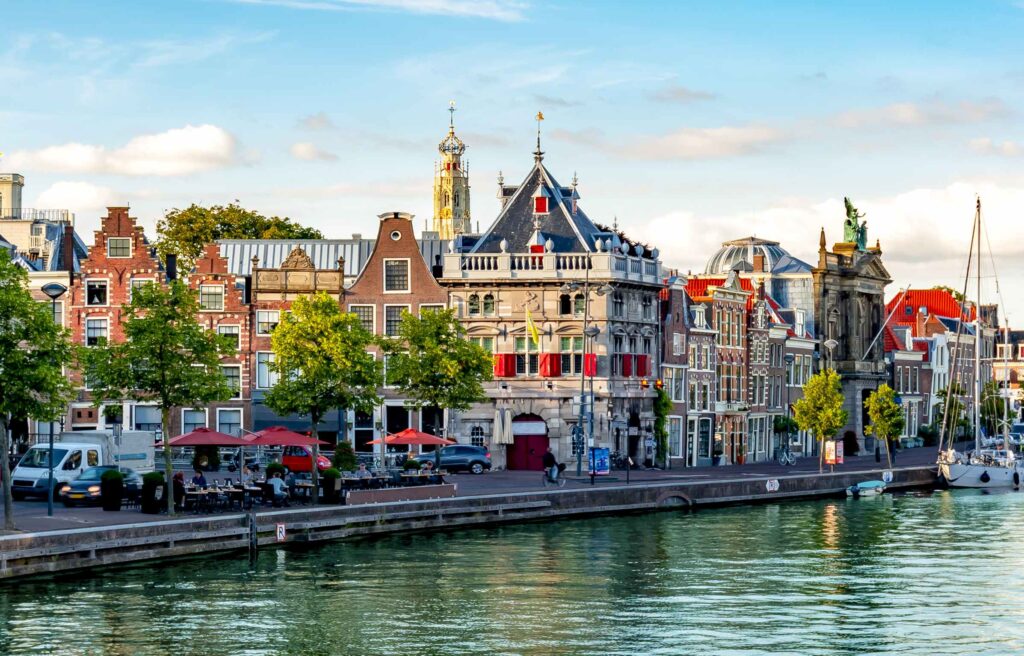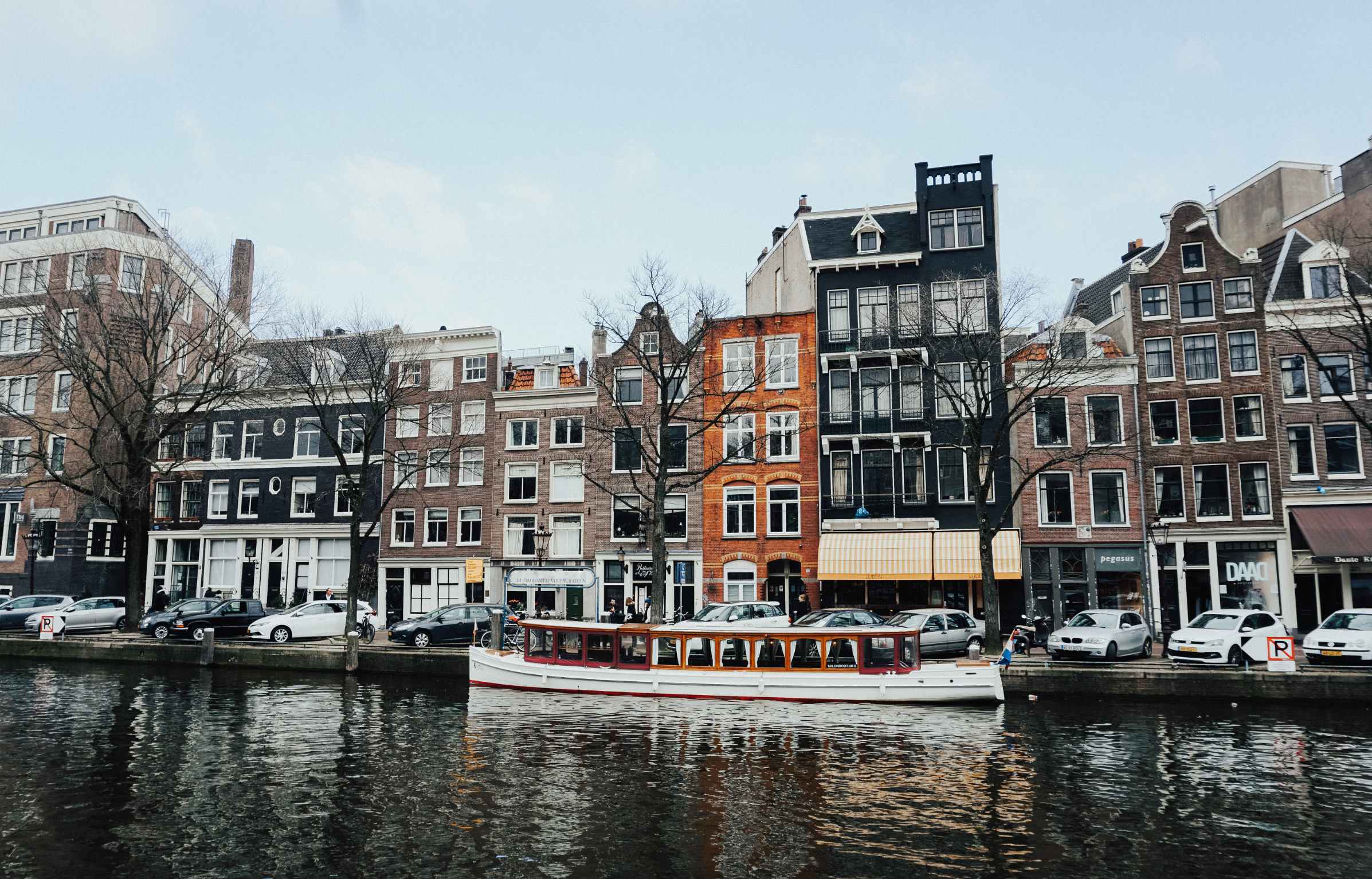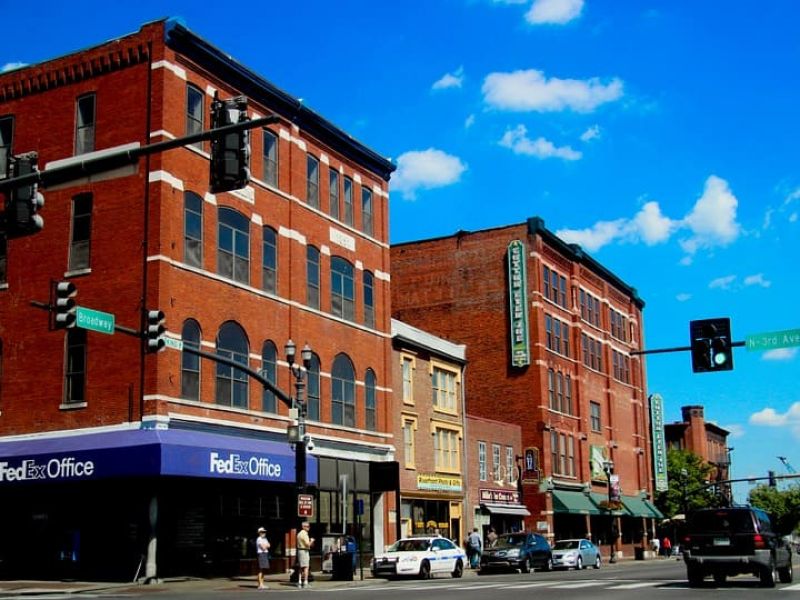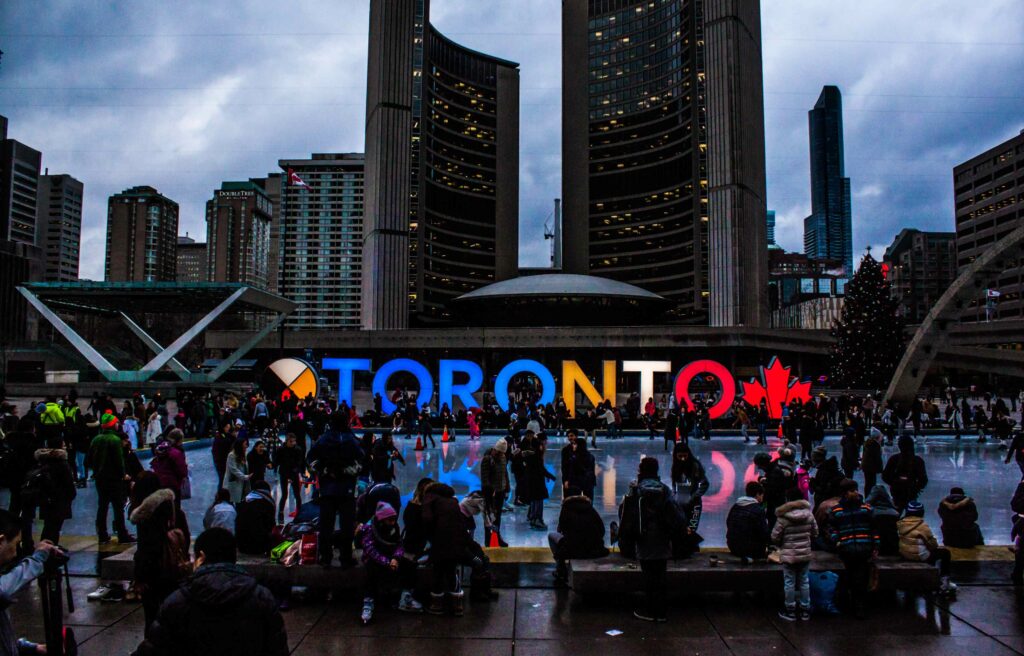Buying property abroad represents stability, opportunity, and a new chapter in life. The process may seem complex for anyone looking to buy a house in the Netherlands. Between legal requirements, mortgage rules, and market competition, even locals admit the Dutch housing system demands patience and precision. The path becomes manageable and rewarding with the correct information and an easy-to-follow plan.
By early 2025, Dutch homebuyers are paying an average of €520,000 for a house, marking a 7% rise compared to the previous year, according to data from the De Nederlandsche Bank.
Homeownership is a significant step. If done wisely, it becomes a financial investment and an emotional foundation for your new life in the Netherlands.
Here’s how to make it happen, step by step.
Step 1 – Check Residency Rules Before You Search
Knowing your legal standing is crucial before you buy a house in the Netherlands. EU citizens can freely purchase and own property without additional bureaucracy. Non-EU nationals may need residence permits before applying for a mortgage or signing contracts. Although owning a home does not automatically grant residency rights, it can support long-term visa or residency applications.
The Dutch government maintains transparency through accessible portals like IND.nl, which outlines who can buy and reside in Dutch property. According to I Am Expat, over 20% of homebuyers in Amsterdam in recent years have been non-Dutch residents. That number is growing, reflecting global trust in the Dutch housing system.
Start by checking your visa category. If you work in the Netherlands, your employer may help with documentation or even sponsor part of your relocation expenses.
Step 2 – Get a Clear Picture of Your Finances
Mortgage eligibility in the Netherlands depends on income, employment contract type, down payment capacity, and credit history. Most banks lend up to 100% of the property’s market value, but this rarely covers closing costs. You can expect additional costs of around 5-6% of the purchase price, including transfer tax, notary, and valuation fees.
Before moving forward, get preapproved for a mortgage. Dutch banks such as Rabobank, ABN AMRO, and ING provide online mortgage calculators. Independent advisors, such as Expat Mortgage Platform or Hypotheekvisie, can guide expats through foreign income assessments and legal translations, making buying a house in the Netherlands easier.
Banks often prefer permanent contracts for salaried individuals, but those with temporary employment or self-employed status can still apply, provided they have proof of consistent income. When planning your real estate financing, saving for a down payment, usually around 10%, is highly recommended to cover fees and price difference buffers.
Owning property can also yield financial benefits. According to Rabobank, the average property price in the Netherlands rose 8.5% annually in 2024. Purchasing a property may be more financially sound than renting, depending on your stay duration and location.
💡 Related – 12 Useful Apps when Relocating to Amsterdam, NL in 2025
Step 3 – Choose the Right Location for Your Needs
Each Dutch city has a unique flavor. Amsterdam is a bustling and international city with a historic charm and high demand. Rotterdam offers modern architecture and is a hub for creatives. Utrecht blends medieval beauty with easy access to major cities, while Eindhoven attracts tech professionals due to its innovation ecosystem.
If you want to buy a house in the Netherlands for a long-term family life, proximity to schools, green spaces, and healthcare centers matters. Platforms like Funda.nl allow users to filter based on region, amenities, and house types. Use these tools to compare neighborhoods.
Regional property prices vary significantly. Amsterdam (also, you can read the complete guide to relocating to Amsterdam) has an average house price of €515,000 in 2024. Buyers typically find properties in Groningen or Limburg priced under €300,000. Knowing lifestyle preferences such as urban convenience or rural tranquility, helps narrow the search.

Step 4 – Work with a Certified Real Estate Agent
Known in the Netherlands as a makelaar, this professional makes the process more efficient and far less overwhelming. For instance, agents open hidden listings, arrange viewings, manage negotiations, and coordinate directly with sellers to keep everything on track. Therefore, always choose an agent registered with the NVM, the Dutch Association of Real Estate Agents.
This membership signals professional standards and legal compliance. Their role extends far beyond showing listings. A qualified agent tracks market trends and property conditions, helping you with a stand-out bid. In addition, reviewing key documents and arranging inspections are vital parts of the process when you buy a house in the Netherlands.
Costs vary depending on the region and the agency, but real estate agents typically charge between 1% and 2% of the final purchase price, excluding 21% VAT.
For example, if you buy a property priced at €400,000, the agent’s fee would range from €4,000 to €8,000, plus an additional VAT of €840 to €1,680. Some agents offer fixed pricing for expats, especially in major cities, with packages starting at €3500 for basic services. At first, this may feel like an upfront cost.
However, a skilled agent often prevents costly mistakes, secures stronger negotiations, and provides peace of mind throughout the purchase.
Relo.AI is the best option if you’re looking for trusted agents who know the Dutch market and the needs of international buyers.
Step 5 – Know the Bidding and Offer Process
Bidding works differently from auctions or US-style negotiations. It is a closed process. After viewing the home, buyers submit a formal offer. The seller can accept, reject, or counter it. Before making an offer, obtain the WOZ (Wetgebouw Onderlinge Waarde) property’s value from the municipality. This figure affects property taxes and gives insight into the home’s worth.
A structural survey is also advisable to avoid surprises, such as roof damage or outdated insulation, especially for older properties. Once the offer is accepted, a preliminary purchase agreement, known as a koopovereenkomst, is signed. Dutch law allows a three-day reflection period during which buyers can cancel without penalty.
After that, pulling out incurs a fine of 10% of the purchase price. If you plan to buy a house in the Netherlands through a mortgage, your bank will appraise the home before releasing funds. Be prepared to provide updated documents promptly to avoid delays.
Step 6 – Secure a Mortgage That Matches Your Situation
Finding the right mortgage means taking time to understand your options. A fixed-rate loan gives you steady monthly payments, which can offer peace of mind. On the other hand, a variable rate might save money if interest rates stay low. Most Dutch mortgages run for 20 to 30 years, and you’ll usually choose between a full annuity or linear repayment, depending on what fits your financial plans best.
To make the process smoother, working with a mortgage advisor can be a smart move. These experts compare the interest rates of various institutions, bank offers, and hidden conditions. Additionally, some advisors collaborate with international lenders if your income comes from outside the EU.
The average interest rate on a 20-year fixed mortgage stood at approximately 3.7%. Locking your rate at the right moment could provide long-term financial advantages, especially for buyers concerned about inflation.
Document submission should be swift. It includes proof of income, passports, residence permits, and signed purchase agreements. The mortgage process usually takes four to six weeks, but it may take longer if the documents are incomplete or inaccurate.
Click here to compare current mortgage rates and secure the best deal for your new home.
💁♀️ Also read – Refinance Your Mortgage: How And When To Do It
Step 7 – Finalize the Legal Work and Notary Transfer
All real estate transactions in the Netherlands must go through a civil law notary. The notary drafts the deed of transfer (leveringsakte) and mortgage deed (hypotheekakte), ensuring all documents comply with Dutch property law. Buyers choose the notary. Costs usually range from €1,000 to €2,000, depending on the office and translation needs. Once the mortgage is approved, the notary will schedule the transfer date.
On that day, all parties gather to sign the final documents. You will receive the keys upon registration at the Kadaster Land Registry. During this stage, buyers deposit their down payment into a third-party account, which is a deposit account, guaranteeing safety for all parties.
Inspecting the home one last time on the transfer day is common to ensure the property condition matches expectations. This phase marks the official conclusion of the purchase. You now legally own property in the Netherlands, a milestone worth celebrating.
Step 8 – Register Your Property and Move In
Ownership alone does not complete the process. After you buy a house in the Netherlands, registration at the local municipality is mandatory. It activates tax updates, trash collection services, and civic records. You will also receive property tax bills and water board charges annually.
You should arrange utility transfers quickly. Platforms like Energievergelijk.nl compare energy providers for electricity and gas. Dutch telecom providers such as Ziggo and KPN handle internet and cable services.
For expats, adapting to the local culture is easier when relocation specialists streamline these tasks. Homeownership in the Netherlands often fosters a sense of community belonging, improved financial stability, and long-term well-being.
Recommended read – Best Time to Go to Amsterdam That Every Traveler Should Know
Skip the Hassle and Secure the Home You Want
Buying property in a new country should not feel like a maze. What you need is structure, timing, and clarity. The Dutch market responds well to preparation. Those who plan, move with purpose, and know the system are the ones who secure the homes they want.
Relo.AI offers full-service guidance for individuals, families, and international investors seeking to purchase a home in the Netherlands. We assist with everything from securing mortgage pre-approvals and knowing tax implications to arranging property viewings and reviewing contracts.
We also coordinate certified translations and book appointments with licensed notaries. You do not need to second-guess the process or waste time piecing it together. We handle every step with clarity, speed, and confidence so you can focus on making the right decision for your life or investment goals.
If you’re relocating for work, expanding your portfolio, or planting roots in a new city, we simplify every step and help you avoid costly mistakes.
Schedule your FREE consultation with us and take the first step toward confident homeownership in the Netherlands.
Frequently Asked Questions (FAQ)
1. Can you get a mortgage as a foreigner in the Netherlands?
Yes, foreigners can qualify for Dutch mortgages. Lenders assess your eligibility based on residency status, employment type, income level, and whether you earn in euros. Many Dutch banks and mortgage brokers have services tailored for expats and international buyers.
2. How much down payment is required?
Banks usually finance up to 100% of the property’s market value. However, this does not include additional costs. Therefore, if you plan to buy a house in the Netherlands, expect to contribute around 5% to 10% of the property price to cover fees such as transfer tax, notary services, valuation, and agent commissions.
3. What are the hidden costs involved in buying a home?
Beyond the purchase price, buyers should budget 5% to 6% in additional costs. Specifically, this includes transfer tax (usually 2%) and notary fees. Moreover, real estate agent fees (1% to 2% plus VAT), technical inspections, mortgage advisor fees, and bank valuation reports also contribute to the total.
4. How long does the home-buying process take?
On average, the process takes 8 to 12 weeks from the accepted offer to receiving the keys. During this time, you will secure mortgage approval, sign the preliminary purchase agreement, arrange inspections, and complete the notary appointment.
5. Can you rent out your home after you buy it?
Yes, but check local regulations. In cities like Amsterdam, there are restrictions on short-term rentals, such as Airbnb, and you may need a permit for long-term rentals. Fines for renting without a license can be significant.
Bring It All Together!
Preparation matters more than luck to buy a house in the Netherlands. Every step requires clarity, legal awareness, and impeccable timing. Buyers can move forward confidently by following this structured plan, even in a competitive housing landscape. You can easily manage Dutch property laws, banking systems, and regional nuances with the proper support.
The strategy remains the same if you move alone, relocate your family, or invest in your future.
Take each step with diligence.









